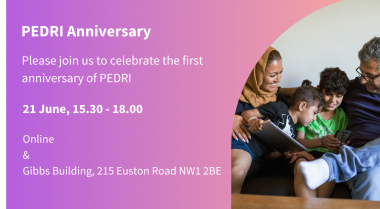
Real time analytics of unstructured and structured records
The project is developing a method of collating and interrogating diverse hospital datasets – including unstructured, written notes – to improve patient care and streamline services.

The challenge
Every day, huge volumes of data are generated by healthcare professionals in our hospitals. The data offered has enormous potential value for research and analysis to improve care for individual patients and streamline the provision of health and care services.
However, this information is in a variety of different formats. This includes ‘structured data’ which tends to be quantitative and can be mapped into pre-defined fields, rows and columns, for example blood pressure readings; and ‘unstructured data’ which is generally qualitative, such as doctors’ handwritten notes.
What’s more, these data are often stored in different underlying IT systems, even within the same hospital. This diversity of data fragmented across multiple systems makes it very difficult to unlock the true value from the detailed information collected across a patient’s journey.

The solution
A key goal is to bring hospital data together in an easily accessible repository – and in such a way that healthcare professionals can ask clinical questions, whilst maintaining patient privacy and data security. That is what a team of researchers at King’s College London, led by Professor Richard Dobson, is developing in the ‘CogStack’ platform and accompanying suite of artificial intelligence (AI)-powered algorithms.
Professor Dobson explains:
“CogStack sits in a wider hospital system and plugs into the various underlying sub-systems and converts all of the data – whether from a word document or scanned file or pdf – into a common format, putting all the information into a big bucket. We can then perform very quick ‘Google-like’ searches over this data and run natural language processing (NPL) algorithms to ask questions and set up dashboards to get a real-time overview.”
During the coronavirus pandemic, the team used Cogstack in conjunction with targeted key-word searches and NLP algorithms, including those relating to symptoms, to provide a real-time situational report of hospital activity on the ground. It even provided up to four days advance warning of surges in COVID-19 admissions.
This approach was developed and validated at King’s College Hospital, Guys and St Thomas’, UCLH and the nearby Maudsley Hospital (which covers the same population but is focused on mental health care). Through the Better Care community, the team are moving forwards to run this approach at a larger scale, across multiple hospitals.
“We’ve trained the AI on a large hospital dataset then taken it into a new hospital that it has never seen before and assessed how good it is at detecting medications, symptoms and disorders. It needs a little bit of re-training and little bit of tuning to the specifics and quirks of that particular hospital, but it seems to port really well.”
 The impact and outcomes
The impact and outcomes
Professor Dobson and team are ultimately aiming to create the world’s largest healthcare NLP AI model, that has been trained to understand text in NHS data.
It would run continuously, 24 hours a day, 7 days a week, monitoring hospital data in real-time and providing alerts. At the hospital and regional level this will allow managers to streamline services and understand pressures on the system. At the level of individual patients, it will ensure the correct pathways of care are being followed in clinical practice and identify opportunities for intervening in a timely way – giving early warning of potential adverse drug reactions for example.
Indeed, the Maudsley Hospital already has a system that automatically alerts doctors at key steps in the care of mental health patients who are also managing diabetes.
Ultimately this sort of system will allow healthcare provision to move from a reactive model to a more pre-emptive and insight-led approach.



